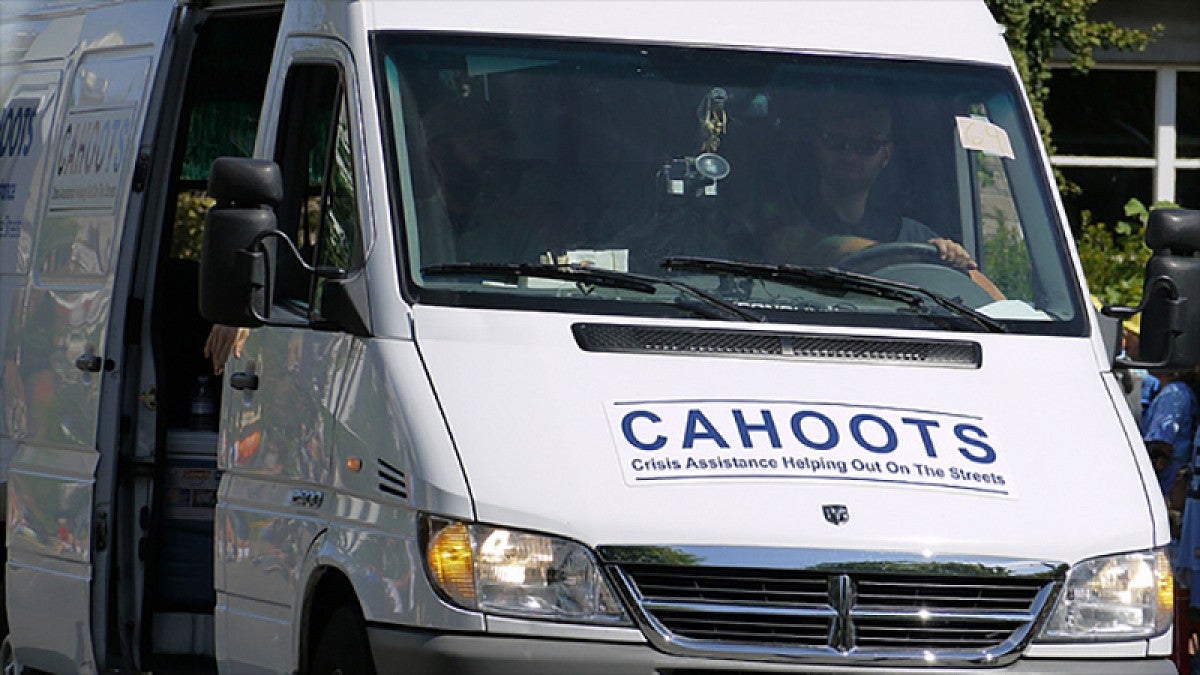UO graduate sociology student Mahindra Mohan Kumar has received a National Science Foundation grant to research CAHOOTS, a groundbreaking crisis intervention program in Eugene.
Kumar is one of a dozen UO students to receive the NSF’s graduate research fellowship, a highly competitive five-year award for research-based graduate and doctoral students. The program funds up to three years of education support and stipends. The University of Oregon provides additional financial support for NSF fellows to cover whatever costs the fellowship does not offset.
The fellowship “immediately advances the professional and research development of some of our most promising graduate students,” said Krista Chronister, vice provost for graduate studies. “It really showcases and raises the profile of the research that our graduate students are doing with their mentors at the U of O.”
Kumar said the grant will allow him to focus more on his research.
“For me personally, it's going to be huge,” he said. “As far as my research goes, I won’t have to teach. And that's huge; that basically means that I’ll have more time.”
Kumar’s research was inspired by his observation that, in the wake of George Floyd’s murder, calls around the country to defund police placed responsibility on social workers to respond to certain situations instead. CAHOOTS, for Crisis Assistance Helping Out On The Streets, garnered national recognition for its alternative to police response.
“We're kind of putting these problems onto certain intermediaries, social workers, to try to fix things that are really wrong systemically in our society that would take a lot more than just a good heart or intention,” he said. “It would take serious changes to how we do things socially and economically.”
With CAHOOTS as a case study, Kumar said his proposed research will investigate how “chronically underfunded” crisis response programs have been asked to solve systemic issues such as houselessness, mental health and poverty.
Kumar said his research proposal was largely inspired by his most recent graduate research, on how case managers at a homeless services organization navigated the COVID-19 pandemic. Both projects explore the duty case managers and social workers face to compensate for insufficient public services that address the “visible problems associated with urban poverty,” he said.
“We need to stop relying on nonprofit organizations and people making very little wages to make up for these huge, widening holes in our social safety net,” Kumar said.
Other fellowship recipients at the UO include:
- Jensen Marie Wainwright: Social sciences, biological anthropology.
- Timothy Nathan Stovall: Chemistry, macromolecular, supramolecular and nanochemistry.
- Kalika Pai: Chemistry, chemical structure, dynamics and mechanism.
- Laura Clare Nosler: Physics and astronomy, particle physics.
- Elizabeth Anne McGuire: Social sciences, biological anthropology.
- Andrew Alexander Lesak: Physics and astronomy, atomic, molecular and optical physics.
- Jaxen Blaze Godfrey : Physics and astronomy, astronomy and astrophysics.
- Carmen Rose Ebel: Life sciences, ecology.
- Dara Craig: Social sciences, science policy.
- Carmen Rose Ebel: Life sciences, environmental biology.
- Savanah Rose Bird: Life sciences, ecology.


